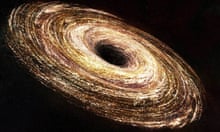1. Are you exaggerating?
The most exciting thing about science is that it can have great implications for the future. It is very easy to use these implications as a hook to draw readers. Writers of press releases and promoters of their own work (even if they are respected scientists) can often overstate their case to sell their ideas, which is why – when writing your own science story – you should always be sceptical (see point 2).
Only a few science papers published in any year will actually lead to great advances or have wide-reaching implications. Are you sure you are writing about such science? You don't want to write stories such as "Recreational pot use harmful to young people's brains", only to be shot down.
2. Did you check with an independent expert?
Unless you are the expert in a field of research, you won't be in a position to judge whether the findings of a research paper stand. Peer review is no guarantee that the study doesn’t still have flaws. Be sure to contact an authority in that field and ask them to read the research paper. Ask them the hard questions. Force them to reveal limitations. Chances are that the science is solid but those bold claims in the paper about what the science can achieve don't stand up to the scrutiny of an independent expert (see point 1).
3. Have you edited your own writing?
As the old adage goes: writing is mostly rewriting. First drafts are hard, but your story is not ready until it has undergone many, many edits.
If you can, take a good night's sleep after writing your first draft. When you wake up and read it again, you will find many places where edits are needed. That is not something to be ashamed of. Instead, take that opportunity to ensure it makes effortless reading. Fill gaps to maintain logical consistency. Cut out superfluous words. Get rid of unnecessary detail.
4. Are you mixing metaphors or overusing them?
Ask any good writer and they will gladly admit to heeding the advice of George Orwell: use metaphors sparingly. If you do use them, don't mix them.
Science writer Jacob Aaron got it right: "Analogies in science writing are like forklift trucks – when used correctly they do a lot of heavy lifting, but if you don't know what you're doing you'll quickly drive them into a wall of laboured metaphors and cause some major damage."
5. Are you lecturing your readers?
No one likes to be talked down to, not even students in a lecture hall. When writing, assume that your readers have no knowledge beyond high school science, but always respect their intelligence. Nothing is more off-putting than condescension.
6. Have you checked your facts?
No matter how good your story is, factual errors can kill it. Double-check and triple-check from original sources that you have your facts right. Don't rely solely on Wikipedia. Don't trust the numbers even if they come from the mouth of a respected scientist.
7. Would your mum read it without putting it down?
In the process of writing a story, you will have spent a lot of time doing research and learned plenty of things about the science. But don't try to fit them all into your story, because you will lose the most interesting parts in the detail.
Stay focused on what is most interesting in your 800-word article, and bring it out for the reader.
8. Have you got feedback from a friend?
Your mum may not be your best critic. So before you enter your story for a competition or send it to an editor, get a friend or colleague to read it. Having spent many hours working on the same story can make obvious mistakes invisible to the writer. A fresh pair of eyes will catch those.
Do …
Check your facts
Edit your own writing
Get a friend to read your draft
Don't …
Exaggerate
Overuse or mix metaphors
Talk down to the reader
Akshat Rathi is the science and data editor of The Conversation UK
The Wellcome Trust Science Writing Prize, in association with the Guardian and the Observer, is open for entries. The closing date is 11 May 2014
Coming up in this series
How to …
report from a science conference
pitch your articles to editors







Comments (…)
Sign in or create your Guardian account to join the discussion